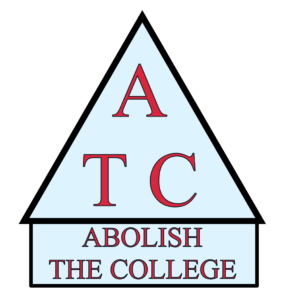On February 5, 2021, two Republican voters from California and two non-profit organizations filed an appeal to the United States Supreme Court asking it to take up the question of whether “winner-take-all” laws governing the choice of presidential electors violate the Constitution. The case is Rodriguez v. Newsom.
Rodriguez directly addresses the constitutionality of the widespread practice of states awarding all of their electoral votes to the winner of that state’s popular vote. According to the petition, this practice, used in 48 states, violates the First and Fourteenth Amendments to the United States Constitution. The main question presented is:
Do the Equal Protection Clause, the First Amendment, or both prohibit California and, by the same reasoning, all the States—from appointing a one-party slate of presidential electors, thereby rendering irrelevant and ineffective the votes and views of millions of voters?
Rodriguez is one of a number of recent cases challenging winner-take-all rules in various states, including Baten v. McMaster, 967 F.3d 345 (4th Cir. 2020), as amended (July 27, 2020) (South Carolina); Lyman v. Baker, 954 F.3d 351 (1st Cir. 2020) (Massachusetts); League of United Latin Am. Citizens v. Abbott, 951 F.3d 311 (5th Cir. 2020) (Texas). None have succeeded.
Focusing largely on the Supreme Court’s one person, one vote cases, the appeal argues that state winner-take-all laws result in completely discarding the votes of those who choose the losing candidate. The case of Bush v. Gore, while not the sole focus, features prominently in that argument, noting, “in Bush, ‘the Court held that under the Equal Protection Clause, ‘the State may not, by later arbitrary and disparate treatment, value one person’s vote over that of another.'”
While not the central thrust of the constitutional argument, the case also focuses on the abandonment by presidential candidates of all but battleground states due to winner-take-all laws:
Because it is used so widely, WTA distorts American democracy. In modern elections, WTA incentivizes presidential campaigns to focus on battleground states at the expense of one-party dominated, “safe” states like California. WTA ensures that California’s fifty-five electoral votes are treated as safely Democratic. Thus, in 2016, 14 battleground states received 99% of candidates’ advertising and 95% of their personal appearances.
According to the brief, there are other serious negative consequences of winner-take-all:
WTA also ensures that presidential candidates are increasingly likely to win elections without winning the popular vote. And indeed, WTA even jeopardizes national security: modern technological trends have made American elections increasingly vulnerable to attacks by hostile foreign entities. WTA—by artificially ensuring elections come down to a small but predictable pocket of votes—makes presidential elections especially vulnerable to such attacks.
The brief also has numerous citations to Every Vote Equal: A State-Based Plan for Electing the President by National Popular Vote, (National Popular Vote Press), which advocates for an interstate compact providing that member states commit to awarding all of their presidential electors to the winner of the national popular vote. According to the organization National Popular Vote, the proposed interstate compact has been enacted into law by 15 states and the District of Columbia with 196 electoral votes and needs an additional 74 electoral votes to go into effect.
Abolish the College will provide continuing updates as the Rodriguez case progresses.

Leave A Comment